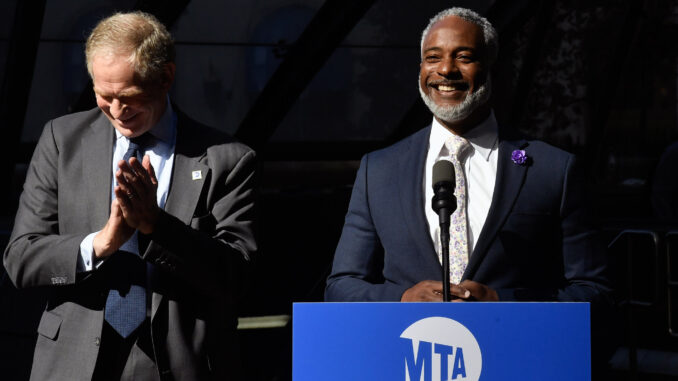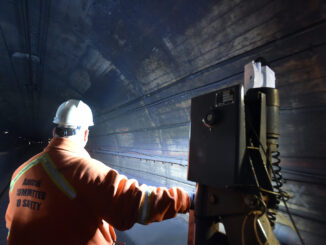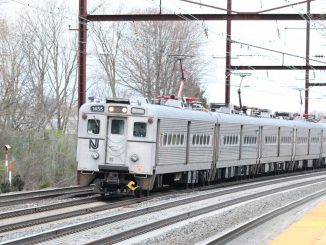
The renewed proposal drew opposition from New Jersey’s elected leaders even before Hochul’s announcement was made. Gov. Phil Murphy and others have repeatedly charged the plan would tax New Jersey commuters and shift traffic and pollution to this side of the Hudson, all to benefit the Metropolitan Transportation Authority.
“New Jersey has never been meaningfully consulted on the design of this plan, either in its initial iteration or the version that was announced today. Perhaps that is because this effort has always simply been a way to take money from the pockets of New Jersey residents to bail out the MTA from a mountain of debt,” Murphy said in a statement Thursday.
The plan, which is set to take effect in January, is meant to generate $15 billion to underwrite the Metropolitan Transportation Authority’s capital budget while reducing vehicle traffic and pollution in midtown Manhattan.
While some New York leaders have cautioned it would boost costs for residents in the outer boroughs while doing little to displace cars, others like Hochul have hailed it as a sorely needed revenue source for the ailing agency that runs New York City’s subways, buses, and the Long Island Railroad.
“This lower toll will still allow us to accomplish all — and I mean all — the goals of congestion pricing. New modern signals, the long-awaited 2nd Avenue subway. New electric buses, elevators, and this will generate major investments for our suburban commuters as well,” Hochul said.
The congestion pricing tolls would add to those already paid by commuters entering New York through bridges and tunnels. Those tolls run as high as $15.38 for cars with an E-ZPass, with far higher rates for larger vehicles.
Residents who make less than $50,000 a year could receive a 50% discount on congestion tolls after their 10th trip in a month, and Hochul said tolls would be further reduced at night, though the size of that reduction was not immediately clear.
Also unclear is how much trucks and buses would pay to cross into the tolling district. Under the plan Hochul scrapped in June, trucks and busses were set to pay $24 or $36 per crossing, depending on their size, with overnight tolls of $6 or $9.
The tolling plan has drawn steep opposition from New Jersey, where state and federal officials have charged New York is seeking to fill budget holes off the backs of Garden State residents and said they question the program’s promised impacts on pollution and traffic.
“You’re charging us more, we’re getting none of the money, the pollution’s getting displaced to our side of the Hudson,” Murphy said during a radio show Wednesday.
New Jersey’s governor has expressed openness to a congestion pricing plan that “meaningfully protects the environment and does not put unfair burdens upon hard-working New Jersey commuters,” but said the plan Hochul announced Thursday fails to meet either bar.
The proposal has also drawn numerous legal challenges, including one from Murphy’s administration that sought a judge’s order for a more fulsome review of its environmental impacts on New Jersey’s side of the Hudson River.
Randy Mastro, an attorney representing New Jersey in that litigation, on Wednesday urged U.S. District Court Judge Leo Gordon to issue a ruling in response to the revived plan.
Others in New Jersey have called on Murphy to combat the plan more directly by vetoing the minutes of the Port Authority of New York and New Jersey, withholding funds for joint projects, and seeking aid from President-elect Donald Trump’s administration, which opposes the plan.
Rep. Josh Gottheimer (D-05), a vocal opponent of the tolling plan, warned it would cost commuters nearly $2,500 each year, or nearly $3,500 for those without an E-ZPass, and called congestion pricing an effort to cover for fiscal mismanagement at the Metropolitan Transportation Authority.
“This is not the time to stick it to hard-working families that are struggling to get by. We need to lower their costs. We need to lower their taxes. We need to make life more affordable. This is just the opposite. I don’t know what New York is doing,” he told reporters Thursday.
— Nikita Biryukov
This article was published by the New Jersey Monitor and is republished here with permission. Click here to view the original.





